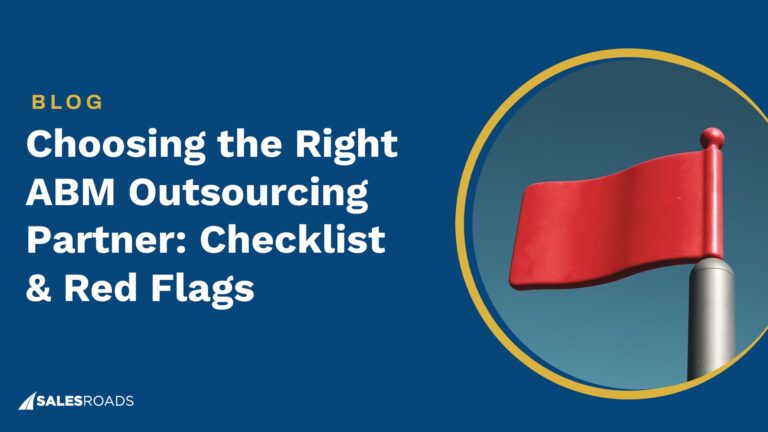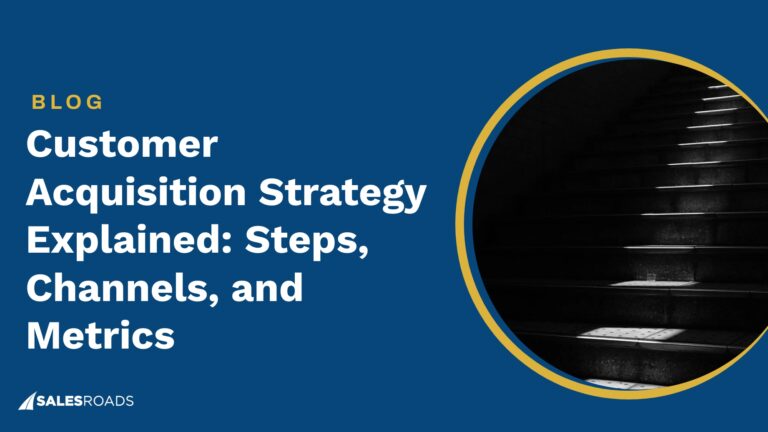Sales development representatives accelerate the sales process by engaging prospects and moving qualified leads through the sales funnel.
SDRs are often confused with Business Development Representatives (BDR) and Account Executives (AE) but they have different sets of responsibilities. To help you understand the role of an SDR, this article details their responsibilities, benefits, and the skills to look out for when hiring one.
Sales Development Representative Responsibilities
The main purpose of SDR is to generate qualified leads for account executives to close. SDRs generate leads by contacting a high volume of cold prospects and setting follow-up appointments with qualified buyers.
Setting appointments is more than making calls, SDRs need to research prospects, conduct multi-channel outreach, and generate interest with the most qualified prospects.
Prospect Research
SDRs conduct prospect research about specific leads as preparation for their outreach call. The information they collect about the individual prospect. Examples include:
| Personal Information | Company Information |
|---|---|
| Name | Employee Count |
| Job Title | Revenue |
| Location | Industry |
Pre-call research helps SDR tailor their approach to a specific prospect, allowing them to have confidence during the sales call. Customizing their outreach shows the prospect that the SDR took time to understand them, especially when making cold calls or cold emails.
Connect With Leads
After conducting prospect research, an SDR must connect with as many leads as possible. The common methods to do this include:
- Emails
- Phone calls
- Voicemails
- Direct mails
- Social media messages
- LinkedIn connections
- Personalized videos
When connecting with leads, SDRs personalize messages with information collected during pre-call research. Personalization is a more effective way to reach and convert leads than sending mass emails or voice messages.
Identify and Qualify New Prospects
A key component of an SDR’s job is to separate leads with potential from those without. This filtering occurs through the SDR qualification process.
The main goal of the SDR qualification process is to identify whether or not the prospect fits the profile of an ideal customer. This is ascertained through probing questions and discovery.
SDRs uncover valuable data points from leads before they’re forwarded to an account executive. These insights include:
- Business processes
- Needs
- Pain points
- Desired timeline
- Budget
- Decision process
These insights help SDRs determine how well the lead matches their business’ ideal customer profile. If the prospect is the right fit, they move on to the next step in the sales process.
SDRs educate prospects by answering their questions, which builds rapport, increases brand awareness, and boosts credibility. Some of the common questions SDRs encounter from prospects include:
- How can your product or service improve my life?
- What are the key features of your products and services?
- Is your solution customizable?
- Do you offer special variations?
- How do I buy your product?
The Benefits of Hiring a Sales Development Representative
Experienced SDRs can provide your company with several advantages that help drive conversions. These advantages include:
Better Lead Quality
Lead generation efforts can attract tons of prospects, but not all of them will be qualified leads. SDRs carefully evaluate each prospect and compare them to a company’s established buyer persona. They weed out the good and the bad to increase the chances of closing deals.
High-quality leads are those most likely to buy products and avail of services. Focusing on them allows your sales team to save valuable time and effort.
Improve Brand Awareness, Authority, and Image
SDRS builds rapport with leads by reaching out through various communication channels. This allows them the opportunity to develop a positive relationship with customers by showcasing the professionalism of the brand that they represent.
SDRs are also very knowledgeable about the company’s products and services. As a result, they can easily answer questions about the company’s offerings, meaning the lead’s trust and confidence.
Increase Growth
SDRs can significantly reduce the burden on sales executives by qualifying leads. This allows your executives to focus exclusively on closing deals.
The division of labor between SDRs and AEs allows each person to be specialized, eliminating inefficiencies and accelerating results.
Skills To Look for When Hiring an SDR
Relevant experience is vital when hiring an SDR, but possessing the right skill set is equally important. Look for the following skills when hiring SDRs.
Active Listening
Active listening is the ability to pay attention to every word someone says and respond accordingly. Active listeners encourage speakers to voice their thoughts and ideas by displaying interest in the conversation.
SDR candidates who are passive listeners are less likely to excel on the job. Appointment setting calls are conversations, not interviews. If the SDR candidates only have passive listening skills, there is a high chance their conversations will sound robotic, making them less likely to close leads and book appointments.
Here’s a comparison of listening versus active listening:
| Passive Listening | Active Listening |
|---|---|
| Mechanical | Interactive |
| Hears the message with little to no involvement from the speaker | Transforms thoughts into clear messages with undivided attention on the speaker |
| One-way communication | Two-way communication |
SDRs qualify leads by asking probing questions which can easily make the sales call sound like an interview instead of a conversation. SDRs with excellent active listening skills can make leads feel comfortable, ensuring they get the information that they need.
SDRs with excellent listening skills know when it is the right time to pause and start speaking. They also prevent long pauses which can create an awkward atmosphere.
Prospecting Skills
Prospecting skills are non-negotiable when hiring an SDR. It’s imperative for your SDRs to be well-versed in sales tactics. They should be aware of what buying signals to watch for and know the right words to pique customers’ interest and the appropriate time to ask certain questions.
Rapport-Building
One of the main responsibilities of an SDR is to build rapport. This is difficult when their main form of communication is phone calls and email, so it’s important to find someone who can foster connections.
Professionals with rapport-building skills are excellent at finding common ground when they make first contact with a lead. They also excel at identifying a customer’s pain points, which results in faster lead qualification.
Critical Thinking
Before a call starts, SDRs are given a mountain of information about a particular lead. But this information is useless if they don’t know how to use it. An SDR with honed critical thinking skills is able to use the best information at its disposal to achieve its goals.
Coachability
Confidence is an important trait for SDRs, but they should avoid being so confident that they won’t accept constructive criticism. Even if they do their job well, they should still be open to coaching and training since organizations frequently change their strategies.
SDRs who are coachable say, “How can I improve this?” instead of “I’m sorry, but…” They also listen and apply feedback rather than give excuses.
Product Knowledge
It’s impossible for SDRs to answer product-specific questions when they know little about the products and services they represent. Gaining knowledge doesn’t occur overnight, so it’s best to find a candidate who’s willing to take the time to examine the product and services they represent.
Resilience
SDRs face objections on a daily basis, so they have to be able to rise above them. They can’t feel defeated after being turned down; rather, they should have a strong desire to move forward and improve.
Sales Development Representative Compensation
| Position | Average Salary | Average Bonus and Incentive | Salary Range |
|---|---|---|---|
| Sales Development Representative | $50,171 | $ 25,226 | $12,558–$640,089 |
According to Glassdoor, the average annual salary for SDRs is around $50,171, but their earning potential is between $12,558 and $640,089.
SDR salaries vary depending on a person’s education, experience, and skillset. Since it’s commonly an entry-level job, the salary is not high paying but SDRs can increase their compensation by hitting their quota.
Some companies offer the following incentives for high-performing SDRs:
- Bonus
- Commission
- Profit-Sharing
The amount for these incentives depends on what’s agreed in the SDR’s employment contract. In some cases, there are SDRs who earn more from their bonuses, commissions, and profit-sharing compared to their base salary which is why their earning potential could be very high.
SDR Specializations
SDRs can be categorized according to their specialization. This helps companies focus on the type of sales development efforts that best fit their playbook.
Here’s a quick look at the different specializations of an SDR:
| Comparison Basis | Inbound SDR | Outbound SDR | Industry-Specific SDR |
|---|---|---|---|
| Focus | Inbound leads | Outbound leads | Specific industry |
| Responsibilities | Qualify leads | Cold calling | Qualify and nurture leads |
Inbound SDR
Inbound SDRs qualify warm leads which are prospects who have had previous interaction with the product or service that the SDR represents. They conduct discovery calls to uncover whether the prospect fits the company’s buyer persona. If they fit, they will be forwarded to the account executive who will work on closing the deal with the prospect.
Outbound SDR
Outbound SDRs are also known as Business Development Representatives (BDRs). Their main goal is to generate and qualify outbound leads.
The leads generated by outbound SDRs are cold leads which are prospects that have no previous interaction or knowledge about the product and services that they represent. These are leads generated through data-building efforts like:
- manual prospect research
- purchasing a lead list
Outbound SDRs usually do cold calling to determine whether the lead fits the company’s buyer persona. This is much more challenging than calling warm leads because cold leads have no context of what the conversation will be about. As a result, the direction of the conversation can be unpredictable. Some cold leads are welcoming while others can be dismissive or rude.
Although outbound lead conversion rate is significantly lower than inbound leads, investing in outbound leads can be beneficial for companies, especially those with high-value deals. Outbound leads can also drive inbound leads by increasing your brand and product awareness.
Industry-Specific SDR
The responsibilities of industry-specific SDRs involve qualifying leads from both inbound and outbound marketing efforts. The difference is that industry-specific SDRs have specialized knowledge in a particular market or field such as tech, medicine, or automotive.
Industry-specific SDRs leverage their expertise to present themselves as a reliable source of information for the industry. By doing this, the industry-specific SDR can build rapport with prospects, which increases the likelihood of closing deals and builds brand authority.
Are you considering hiring SDRs to drive sales for your company? SalesRoads is here to help. Check out our appointment setting services and watch the leads line up at your door!










